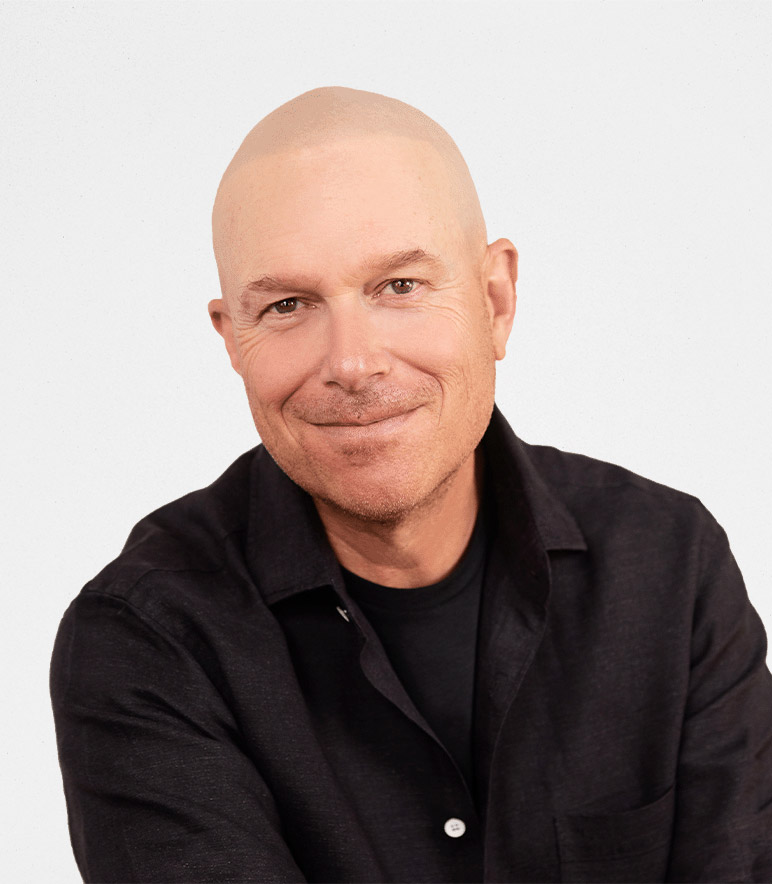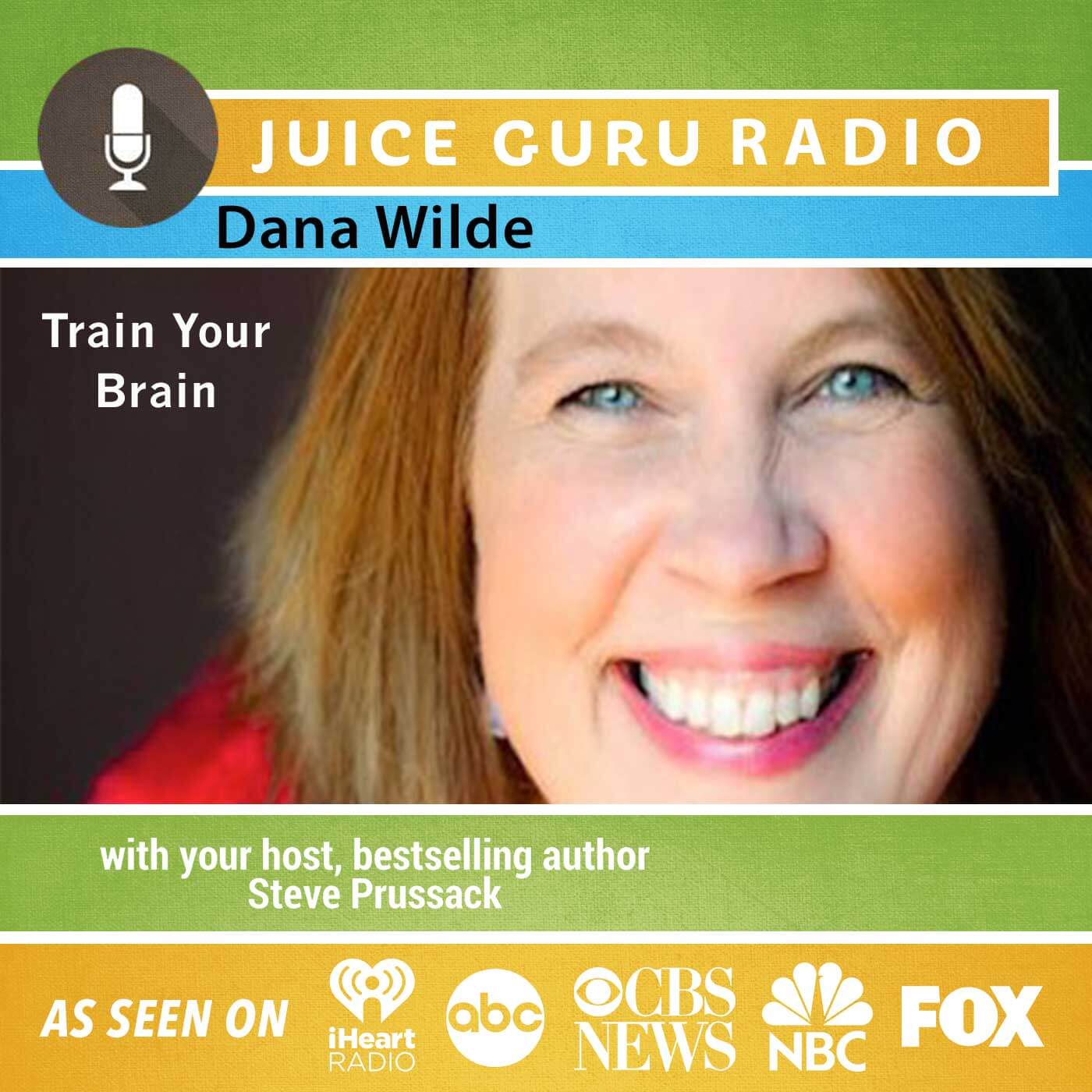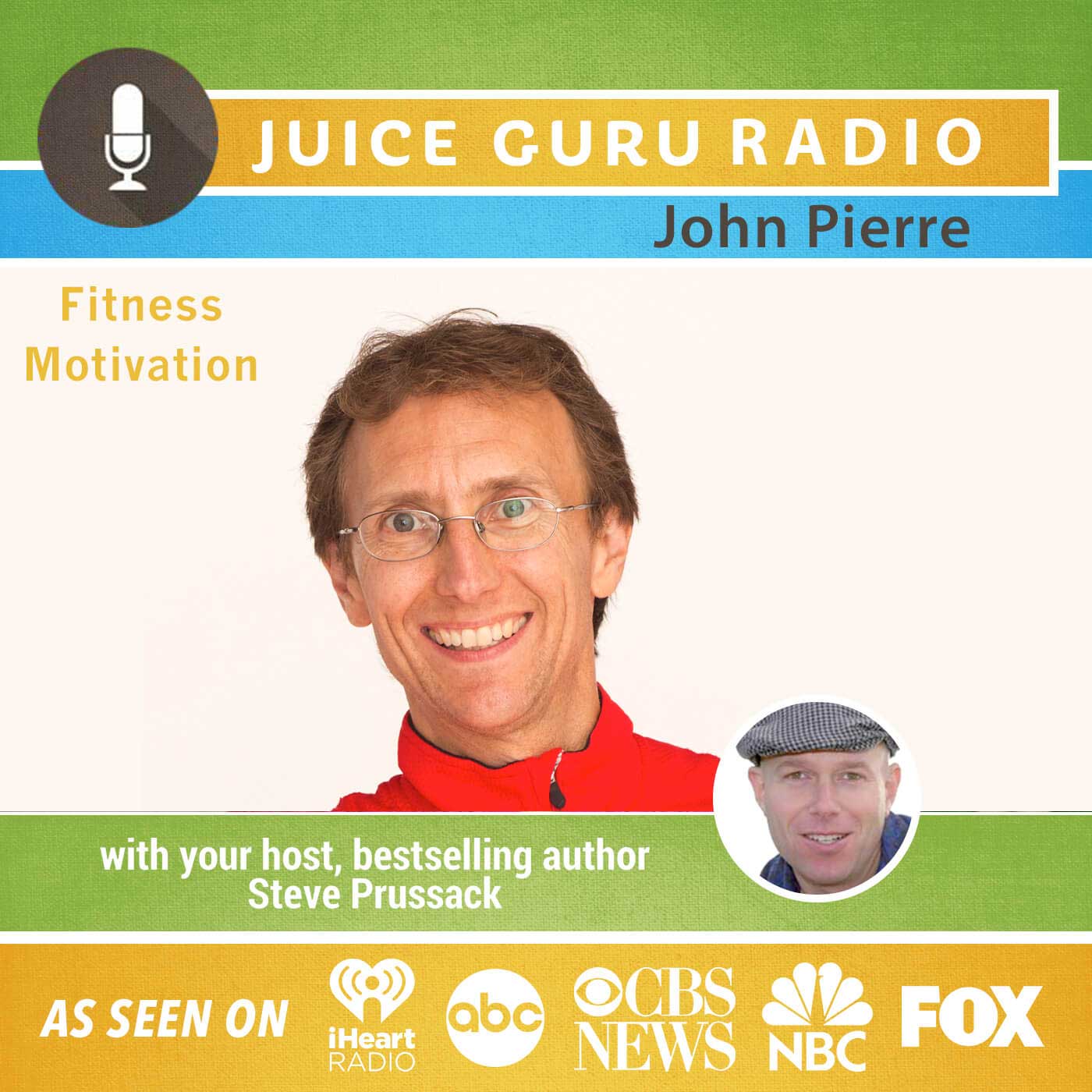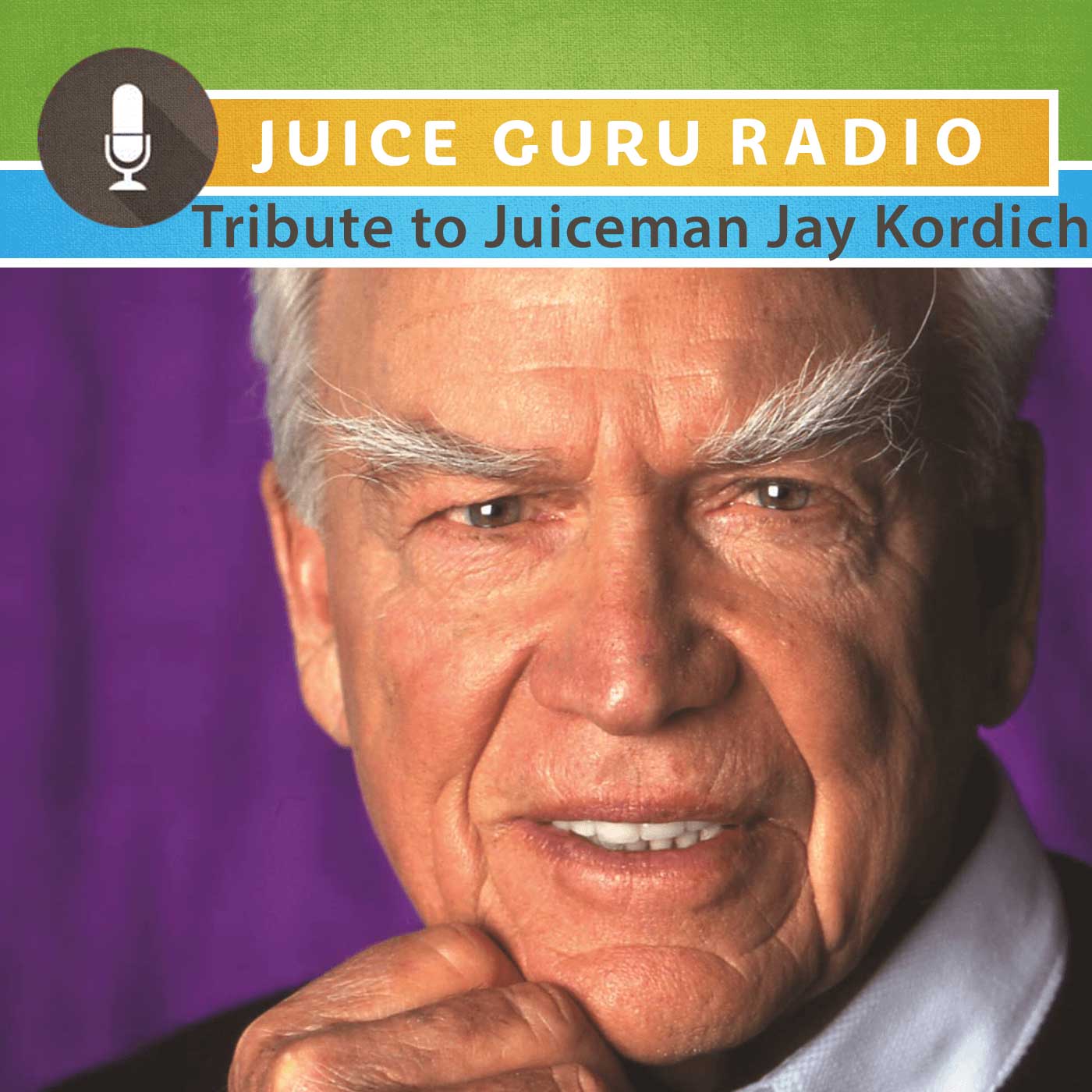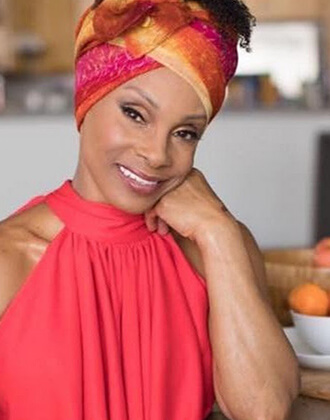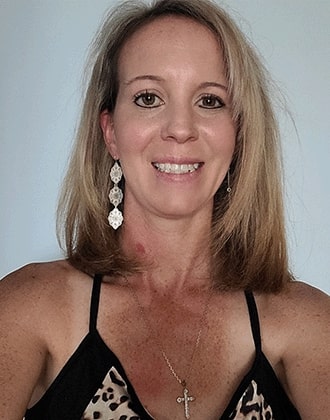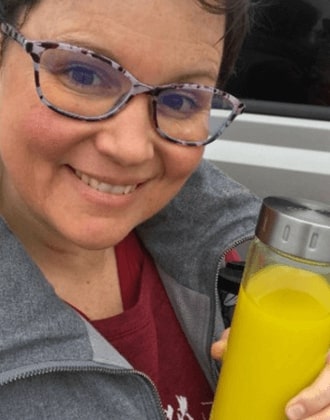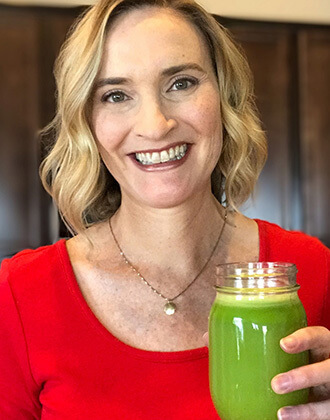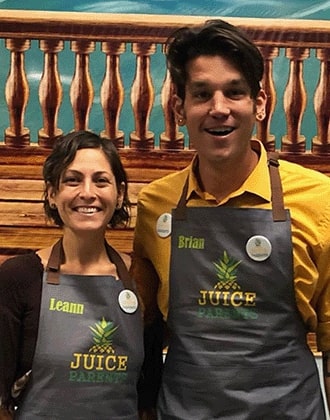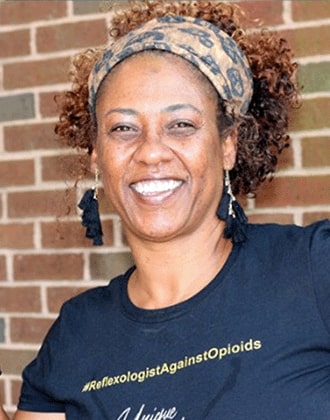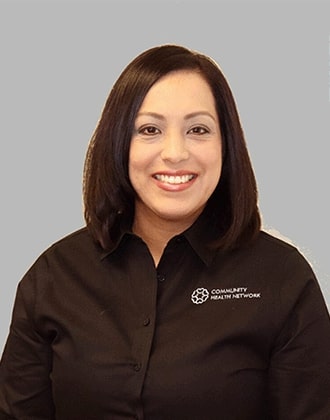Steve Prussack
And welcome to another edition of Juice Guru Radio. I’m your host, Steve. In today’s show, we’ve got Dr. Melissa Mondala coming up. She’s going to be sharing all about her journey to leading as a medical practitioner who uses plants in her medicine and so much more. She’s a wellness expert, health coach, mental health advocate. We’re going to hear all about her journey and how you can learn more from her right after this.
Announcer
Did you know you can make a great living in the hottest new business trend today? The Juice Guru Certification Program is the world’s first online course to give you the knowledge and marketing skills to excel as a juicing coach and start making money in no time. Find out more at juicecoachtraining.com.
Steve Prussack
And welcome back to the show. I’m Steve. It’s so great to be with you. Dr. Melissa is here with us. Holistic plant-based physician, nutritional and wellness expert, health coach, mental health advocate, and recipe inventor. So much more. Let’s hear all about her and what she’s got going on. Dr. Melissa, welcome to the show.
Dr. Melissa Mondala
Hi, Steve. Thanks for having me here.
Steve Prussack
Well, you seem to be having a few things going on in that bio.
Dr. Melissa Mondala
Yeah.
Steve Prussack
Amazing. So take us back. What led you down the path of wanting to become a physician and also, integrate in a more holistic method?
Dr. Melissa Mondala
Sure, sure. No, thank you. I would say if you go back in time, my story in terms of health and wellness, that is very big and broad. People think health and wellness is just being able to move and be alive. But I would say minimizing disease, minimizing medications, and using food as medicine is really what I consider health and wellness. And so in medical school, where I was searching for this, I actually didn’t find that. I was someone who was a psychology major. I love the human behavior. I love how habits really shape the way we thought and behaved. And I thought in medical school, I’ll get to tie it all together. But in medicine, which I still really, really am thankful for – we learned how to diagnose, how to give medications, and how to make assessments. But not really knowing how to prevent disease and not knowing how to stop disease, and that’s what I was looking for.
Dr. Melissa Mondala
So I actually landed on something called lifestyle medicine. I looked at the research, the studies, watched tons of documentaries and books, and articles and really wanted to check the facts. Like why everything on the labels and on TV and wherever you look, it’s saying that all this helps the heart and the mind and gives you good health but everyone is sick around me? And where I keep seeing the same patients over and over, it’s like a revolving door. People go into the clinic and go into hospitals and dying early, sadly. But that’s what just kept happening, the same things – heart attack, stroke, diabetes, cancer over and over again.
Steve Prussack
Yeah. Well, in the roots of wellness, the traditional doctors of the day, in 1900s, 1800s even – it was based on wellness, wasn’t it?
Dr. Melissa Mondala
Yeah. Hippocrates, right? He said himself “Food is medicine.” “The absence of diseases is health.” And mental health is a great component of that as well. So gut health, mental health – those are the things I focused on. And that’s what I was searching for, so I did a lifestyle medicine fellowship. So that was in the in-patient, the hospital setting, the specialty clinic setting. Even in the… we call it the underserved population. So I just served a whole bunch in Guam as well, teaching classes on healthy eating and minimizing smoking and tobacco use. And then, I ended up going to take another primary care psychiatry fellowship as well because I knew that you… You want to eat well and be well but if you are depressed and anxious, that’s a major hurdle. And so, I wanted to be able to use that tool to help patients.
Steve Prussack
Shouldn’t this be the standard? Like, I mean, you’re saying it’s lifestyle medicine. Shouldn’t this be what all doctors are taught, though?
Dr. Melissa Mondala
A 100%, right? I was just at an American College of Lifestyle Medicine conference. Before there was just a handful of people, now there’s 22,000 registries and now it’s global. But before you go into the classroom, it’s probably 1 hour of nutrition is taught and not even very specific on health and wellness. Everything is about sick care and how to identify the disease. But yes, we definitely have to shift the paradigm here and figure a way to incentivize health rather than incentivize disease.
Steve Prussack
What was it for you that turned it around? Did you have a health challenge? What was it that, in your own personal life, made you more open-minded to these ideas?
Dr. Melissa Mondala
Yeah, thank you so much. So, I actually had my own issues of irritable bowel syndrome (IBS), reflux, and mood issues. I was just unfocused, unmotivated. But also with IBS, you have blue stools and bloating. And so, I had my issues. My husband had auto-immune disease. So he had gout, pseudogout, ankylosing spondylitis, and all these other things together. We didn’t realize we were both inflamed, and we needed to change the way we ate, and so we did.
Steve Prussack
One thing… There’s so much we can talk about between mental health, gut health, and direct care. One thing I really want to talk to you about, though, is something that’s not being talked about today in mental health. And with the COVID situation, and the restrictions, and the face masks and the social isolation, and the way kids are being brought up. I’m sensing, energetically, that there’s more anger out there – road rage, people seem irritable. My wife and I noticed it. Are you noticing this, #1? #2, why isn’t it being talked about? And #3, what can we do about it?
Dr. Melissa Mondala
Yes. I would say nearly every single patient who walks through my door is anxious, overwhelmed, upset, fearful because of this whole COVID… I would say, pandemic. And it’s becoming a mental health pandemic where people are less patient, they’re more sensitive, they’re crying, they’re not sleeping, their health is worse, and it’s absolutely true.
Steve Prussack
I don’t hear a lot about it, though, I just sense it. And the news is filled with all kinds of other things, but it seems to be something that it’s going to keep getting worse.
Dr. Melissa Mondala
Yeah, absolutely. So it’s doubling from last year to this year, the rates of depression, anxiety, and suicide. Loneliness is, I would say, the root cause of most chronic diseases. It’s linked to dementia, hypertension, cardiac disease, and mental health disorders. And if we don’t treat the loneliness factor, we’re just going to be stuck and we’re going to see our health and our society just regress if we’re not careful. So, I really think we need to get ahead. We need to find ways to stay connected and be there to lift each other up.
Steve Prussack
We are social creatures, right? I mean, it’s just not natural. What are some of the things our listeners can do to… from what we eat and everything, to just raise our vibration and our mental health?
Dr. Melissa Mondala
Yes, great question. It’s what you put in your gut. Our gut has the immune system, the nervous system, the hormone. 60% of our hormones are all in the gut, so we really need to nourish our gut. So tons of fiber, plant-based foods – so fruits, vegetables, beans, nuts, and seeds, chia seeds, and flax seeds are really important. These are the precursors to serotonin. So things that are high in tryptophan and tyrosine that really are the building blocks to the healthy, happy hormones. And really, to increase the happy hormones and decrease the inflammation is through the foods we eat. So definitely, get some, I would say bootables, whatever you like to eat, smoothies. Have healthy snacks and raise that up and then minimize… You’ll realize that if you eat these healthy foods, you won’t be as needing the unhealthy foods because you are just so satisfied.
Dr. Melissa Mondala
But it takes time, right? It takes adjustments, it takes commitment. And then, do something out there, go outdoors, go on a hike. I love spin, so that’s what I do. And I forgot to even dance. I used to love dancing and now I’m turning up the music because I got to find myself again. And I think that’s what we got to do is just be true to ourselves. There is so much, I would say, bullying out there, darkness – just things that really pull us down. But if we find ourselves, we’ll be able to think more clearly, make wiser decisions, and just find that positive part spark back in us again.
Steve Prussack
What about the role of technology, the digital world we’re living in? I have a 15-year-old. He’s on his device all the time. He connects more with his friends that way. Isn’t there going to be some repercussions to the isolation that comes with digital? You know, being plugged in all the time?
Dr. Melissa Mondala
Yes, yes, that’s a big passion of mine. So I see a lot of adolescents, a lot of students, and now they’re asking everyone to submit their homework all digitally, everything, right? It’s digital, it’s convenient, and they’re trying to optimize learning through digital ways. But I would still say, in the physical world, we still need that human interaction. We need to be able to play our sports. We need to be able to have a conversation, not just text, right? Being mindful and present, and those are important. So yes, with technology, if you have high rates of screen time, not only does it cause eye strain and headaches, and lack of focus, but also you’re more likely to be sitting down instead of exercising. You’re more likely to become more depressed and anxious because you’re just looking at all the technology and you’re comparing yourself to other people. And there’s this ugly cloud around you for too much in that technology media space.
Steve Prussack
From all the work you’re doing from lifestyle medicine, working on family medicine, primary care, psychiatry, and as one of the first and youngest nationally recognized lifestyle medicine fellows, and amazing work that you’re doing. And your co-founder of the Dr. Lifestyle Clinic, can you tell us more about that?
Dr. Melissa Mondala
Yes, thank you so much. So I’m based in Newport Beach, and it’s actually a dream of mine to be able to focus on health and wellness in the clinic. Most doctors only spend 5-10 minutes, and here’s a prescription. They don’t really get to dig deep and investigate and allow the patient to also make decisions for themselves because they also want to become healthier. So I do a lot of coaching, educating, and talking about nutrition. I spend an hour with my patients, and I’m right there with them. I want to be there in their crisis, and I want to also be there to prevent the crisis.
Dr. Melissa Mondala
So I have something called ‘direct primary care.’ So it’s direct access to me, so they’re able to have frequent visits with me. They’re able to have an app, and we’re able to just get through and overcome. And I see that’s how we make lifestyle changes. That’s where we see these health outcomes where they’re completely different. So I work there with my husband, who’s an autoimmune, integrative plant-based rheumatologist as well. So he also had his autoimmune disease that he transformed. So together, it’s just been… I would say a dream but also patients’ dreams. They literally have been telling me, “I’ve been looking for you for years, decades. Thank you so much for what you’re doing. I’ve tried everything out there. Thank you. This is finally something I can do and connect with, and I’m finally getting some results. Thank you.”
Steve Prussack
It’s funny because I had recommended you to a friend a couple of weeks ago. I found you. And I didn’t even know that they were reaching out to you to be on the show. And then when you said Newport Beach, it all clicked. I’m like, “Oh, my God. I just recommended you.” Because she was looking for someone in California that understands plant-based, that can be holistic. We need more doctors like you. We need to clone your clinic. You need to train others. Don’t we need more of this? I mean, throughout the country, because I’m always asking for people like you.
Dr. Melissa Mondala
Yes, 100%. There’s a huge movement. Doctors are set up, nutritionists, and pedias. Everyone wants… even pharmacists, physical therapists. We’re all coming together. There’s a big movement, and now we just have to find a way to practice it. Because in the big hospitals, there’s so many policies and there’s so much red tape that it’s harder, it’s slower. So that’s why there’s now people like us going into private practice and just being creative and going out there. And yes, our goal one day is to keep expanding our clinics, keep serving. I have Planted Forward which is going to be launched on Monday, which is going to be a plant-based health medicine group of specialty doctors. So cardiologists, GI doctors, registered dieticians, and health and fitness coaches. So that’s being released on Monday. So stay tuned for plantedforward.com.
Steve Prussack
Oh, wonderful. Yeah, there’s definitely going to be such a need for this. But right now it’s sort of fringe, right? What did your peers think about this path and other fellow clinicians? It’s still sort of like, “Oh, what are you doing?”
Dr. Melissa Mondala
Oh, yeah. Definitely and many times, even in my own training and my colleagues, they just didn’t get it. They say, “You’re just too young” or “That’s too big of a dream” or, you know, “You got to focus on the real medicine. You got to stay in the hospital” and “Why are you going out there teaching people how to cook?” But they didn’t realize that that is where the healing starts, in the kitchen and the home, and being able to have quality sleep. And the medications will always be an option, but you’re just putting bandaids. So it was kind of a tug of war over there. It was definitely something new in medical, but we knew it was our calling. And just like you, you’re in this space and you’re committed.
Steve Prussack
Yeah. And I love you’re young, so you’ve got to think where you can be down the road of what you can be able to accomplish. You can be able to accomplish… It’s unimaginable. Do you have a dream though? For you what would be the vision? Like 5-10 years, 15 years down the road, what would you like to accomplish in all this?
Dr. Melissa Mondala
Thank you so much. I dream about it every day and I’m almost humbled every day. I would really love to just have, I would say a presence in terms of there’s the physical space but in the media, when it comes to… My husband and I, we want to write a book. We definitely are restarting our YouTube. We want to have a center for healing. I’ve been to also retreats and centers like TrueNorth and Weimar. In just 15 days, people’s lives changed because they had the frequent education and safety monitoring, investing, and everything. And those are extremely awesome and I would just want to see it grow globally and help other people know that this is possible and inspire others that they can do the same.
Steve Prussack
Well, it’s needed now more than ever. What is the website? I don’t see it here on my notes. Where do we find the Dr. Lifestyle Clinic?
Dr. Melissa Mondala
Oh, thank you so much. So that is drlifestyle.org. So, drlifestyle.org.
Steve Prussack
We’ll put the links under the show notes here at juiceguardradio.com, so you guys can check this out and support the great work.
Steve Prussack
Was it your husband that got you into this or were you sort of on this path and brought him along?
Dr. Melissa Mondala
That’s funny. I had to get him along because we’re so different. Like our backgrounds, we ate almost every animal, the Asian culture. I had to change the kitchen and the pantry myself. And he got convinced and enjoyed my cooking. So that was a blessing.
Steve Prussack
And it’s good that he was open-minded to it. I see recipe inventor. What are some of the things…? Are you mixing up things in the Asian menu or what are some of the things you’re coming up with?
Dr. Melissa Mondala
Yeah, thank you so much. I started on social media, I think it was in 2018 or 2019, around there, where I would just ask people to go on this 30… Actually, it was a 365-day challenge, meaning 52 weeks. So, 1 new plant-based recipe a week using one plant. And so during that time, I just started collecting all my recipes and we shared back and forth. And literally, my favorite things are just all types of cuisine. So if it was like beet hummus or if it was Brussels spouts – very, very easy. But also kind of the more challenging things like plant-based ramen or red bean soup. And my newest project and behind the scenes, I’m trying to get all the… I know some of the Filipino dishes, but the island foods. I just went to Hawaii and I’m like, “Oh, I just want to veganize all of this. This would be so much fun.” So I like all cuisines, from Seoul food to Italian food. Basically, whatever I eat in restaurants I want to be able to make at home. So that’s the goal.
Steve Prussack
I love it. And are those going to be books too? Do you have a vision for recipe book as well?
Dr. Melissa Mondala
Yeah, thank you. I have some electronic ones, but I want hard copies next time. So I do have a plant-based cookbook that people can get and then, a jumpstart guide that people can get as well. But I would want the hard copies to be the next phase.
Steve Prussack
Exciting. Do you expect that at any point, you’ll be offering food in-clinic or will it all be… We don’t say client, we say patient, patient education.
Dr. Melissa Mondala
Yeah, that is also part of my dream. I would love to have a teaching kitchen and just be able to have food offered there. That is definitely one of them. Right now, I’m doing it virtually where I kind of get all the products and food that I vetted myself and support. And I’m actually doing at the ribbon cutting, the one-year anniversary of the clinic, and having goodie bags so that they know this is what’s good for me and they can get inspired.
Steve Prussack
Love it.
Steve Prussack
So before we close out here, anything that we didn’t touch on or more that you’d want to share with the audience? And that can be in any area, whether it be gut health or any of the other areas you’d like to talk about.
Dr. Melissa Mondala
Yeah, great. So when I think about healthy lifestyle, I always talk about nutrition, exercise, sleep, emotional well-being, stress management, and then avoiding toxins and substances to really preserve our health. To extend, in a way, where we can live not only happy and healthy but be able to minimize medications. And looking at the science, people may wonder and question it over and over and maybe in a place of doubt. If you’re in that place, just know that you’re not the only one. People have done it successfully. People have seen their health get better.
Steve Prussack
So it’s more of an integrative approach?
Dr. Melissa Mondala
Yeah, so it’s integrative. It’s holistic. I love meditating with my patients. I love doing breathwork and showing them fun recipes. And really, it’s this partnership. I don’t think doctors are in this untouchable place where they’re like, calling all the shots. I don’t think that’s how health goes. I think it’s really sitting there hand in hand and having this shared decision to do the best, to be vulnerable with our health, and to understand the progress over perfection and just being able to say, “Yeah, I really struggle with this.” And I see those are the things that when people are able to open up about their fears and about their health, and that’s where the breakthroughs happen.
Dr. Melissa Mondala
I had patients who were scared just to take their blood pressure because all their life they thought if they had high blood pressure they were going to die and they had severe, severe anxiety. So just being able to listen, stay attuned, and understand. And I would say if that’s you right now, just take a step back, reflect, write your thoughts down, write your fears down, and be able to hold up that mirror. Because that’s when you’ll be able to see and recognize and make some shifts. Sometimes you actually need the extra help and get that from a health professional. But I would say when it comes to health, it’s first being honest with yourself. Second is being brave to get help and ask, to do something different, to make a change. And the third is to commit because you’re worth it, your family is worth it, your future is worth it. And you’ll know that it will make a lifetime impact on your family and the rest of the world.
Steve Prussack
She’s Dr. Melissa Mondala. Again, the clinic is… Did I get that right?
Dr. Melissa Mondala
Yeah. Well done.
Steve Prussack
You know me. Again, we’ve got the clinic, Dr. Lifestyle Clinic. It’s over in Newport Beach, California. And so, we need more. We need more of this. So thank you for the incredible work you’re doing. We’ll have the links to your site. Are you guys on social media, too?
Dr. Melissa Mondala
Yes, we are. We definitely are. On Instagram, it’s at melissamondala.md. My husband is myautoimmunemd.
Steve Prussack
Yeah, we’ll have to get your husband on next time for next season.
Dr. Melissa Mondala
Oh, yeah. Definitely.
Steve Prussack
Yeah, we would love that. Thank you again, Dr. Melissa. Thank you for being here and the great work you’re doing, doctor. This is amazing.
Dr. Melissa Mondala
Yes, thank you so much. Love seeing you and connecting, and we’ll have to meet in person.
Steve Prussack
Absolutely. We’re neighbors, pretty much. We’re in Redondo.
Dr. Melissa Mondala
Oh, yeah. Definitely.
Steve Prussack
Much love. Thank you. And I’m Steve Prussack, and we’ll see you next time. Thank you, guys.
Announcer
Thank you for listening to Juice Guru Radio. Find out more about us at juicegururadio.com. Until next time. Get your juice on.
